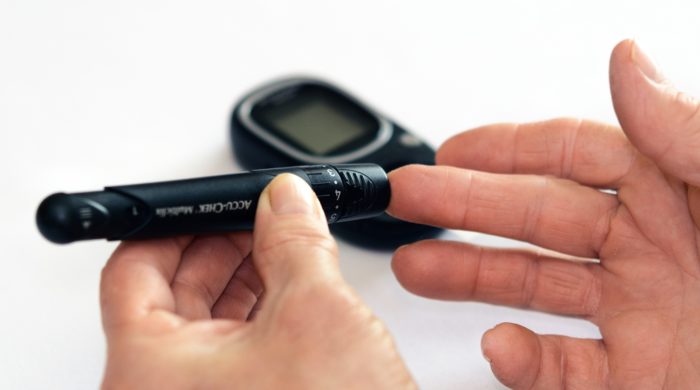To spread knowledge about different types of diabetes and their risks, November was declared Diabetes Awareness Month, and November 14 is World Diabetes Day. It’s the perfect time to get educated about Diabetes, understand the signs and symptoms of it and be aware of treatments available for those who have the condition.
What is Diabetes?
Diabetes is a chronic condition that impacts how your body transforms fuel (food) into energy. For example, someone with Diabetes has a system that either doesn’t produce enough insulin to let blood sugar into their body’s cells, or it doesn’t use the insulin it does produce to the full potential. This can cause serious, sometimes life-threatening health issues such as blindness, kidney disease and heart failure. It is not curable, but it can be effectively treated, so that those who have it can live long, productive lives.
Different Types of Diabetes
There are three main types of Diabetes:
- Type 1 – Over a million Americans suffer from Type 1 Diabetes, and several thousand more will be diagnosed in the next year. This type of Diabetes happens when an individual’s blood sugar is too high. Often their immune system malfunctions and attacks and destroys the cells in the pancreas that make the body’s insulin. This form of diabetes can strike anyone of any age, race or size.
- Type 2 – The most common form of Diabetes is Type 2—over 30 million Americans are estimated to have it, while 84 million Americans have Pre-diabetes (which can lead to Type 2 Diabetes if not treated). With this form of the condition, the individual’s body doesn’t use insulin properly. This type of Diabetes is more common after the age of 45, though teens and younger folks can still have Type 2 Diabetes. It also affects African Americans, Asian-Americans and Native Americans more frequently than Caucasians; however, any race can get it.
- Gestational Diabetes – This type of Diabetes develops in pregnant women who didn’t previously have Diabetes and can often be controlled by diet and exercise. If not controlled, this can lead to a higher chance of a C-section delivery, high blood pressure and low blood sugar.
Signs and Symptoms of Diabetes
The signs of diabetes aren’t always obvious and can be confused with other ailments. Here are some of the most common diabetes symptoms:
- Frequent urination
- Feeling very hungry and thirsty
- Blurred vision
- Slow-to-heal cuts and bruises
- Excessive fatigue
- Numbness in hands and feet
- Weight loss
If you or a loved one is experiencing some of these symptoms, it may be time to get tested for Diabetes.
Screening, Diagnosis and Treatment
To determine whether or not you have Diabetes, you’ll need to have a doctor administer a blood test. There are a few different tests that may be used:
- A Fasting Blood Sugar Test measures the blood sugar after the individual has refrained from eating overnight. A level 99 or lower is normal; 100 – 125 qualifies as Pre-diabetes and 126 or higher indicates Diabetes.
- A Glucose Tolerance Test measures the blood sugar before and after ingesting a glucose-laden liquid. The doctor will check the blood in subsequent hours following the test to see if you have pre-diabetes or diabetes.
- A Random Blood Sugar Test measures the blood sugar at any time, regardless of when the individual last consumed food. It can indicate Diabetes, but not Pre-diabetes.
- An A1C Blood Sugar Test measures the blood sugar average over a period of 2 or 3 months. It can detect both Pre-diabetes and Diabetes.
Treatment:
- If you’ve been diagnosed with Pre-diabetes, a doctor will most likely recommend that you modify your diet, exercise more often and maintain a healthy weight to avoid your condition developing into Type 2 Diabetes.
- If you’ve been diagnosed with Type 1 Diabetes, a doctor may advise you to monitor your blood sugar regularly, take insulin, eat healthy foods and exercise regularly.
- If you’ve been diagnosed with Type 2 Diabetes, a doctor will evaluate whether or not you need medications to treat it, in addition to modifying your diet, increasing your exercise and making other necessary lifestyle changes such as quitting smoking (if applicable).
- If you’ve been diagnosed with Gestational Diabetes, your doctor will discuss the best foods for you to eat, an exercise plan that is safe for you and your unborn child and an insulin regimen, if needed.
Who is at Risk for Diabetes?
Though what causes diabetes varies from person to person, there are certain risk factors that can increase your chances of getting Diabetes. The most common are:
- Family history of Diabetes
- Weight (due to cells becoming resistant to insulin in fatty tissue)
- Inactivity/Sedentary Lifestyle
- Age
- High Blood Pressure
- Race
- Hormonal changes during pregnancy
- Environmental factors/viruses
- Pancreatitis
Talk to a Doctor
If you’d like to learn more about caregiver resources or need assistance caring for a family member or friend, consult with your Primary Care Provider. For additional support, request an appointment with the Western Washington Medical Group Endocrinology clinic.
